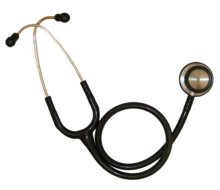WHY MEN OUGHT TO BE MORE CONCERNED ABOUT THEIR HEALTH

 Looks as if Nigerian men are paying the price for neglecting their health, with more men dying prematurely every year.
Looks as if Nigerian men are paying the price for neglecting their health, with more men dying prematurely every year.
But common male health problems can be detected and treated earlier (if not prevented) with better awareness and regular check-ups. Listed are some of the health issues highlighted by experts and how to cope with them.
A TESTICULAR LUMP:
Testicular cancer is the most common cancer in men aged 20 to 35, so any lumps or abnormalities in testicles should have urgent medical attention. Most lumps are benign but it is vital to get them checked because treatment is much more effective if cancer is diagnosed early. Go to: www.orchid-cancer.org.uk.
ABDOMINAL OBESITY:
This affects 30 per cent of adult men. Fat around the midriff is particularly dangerous because it secrets toxins that increase the risk of various medical disorders. Those affected are made more susceptible to high cholesterol, diabetes, hypertension and cardiovascular disease. Abdominal obesity can also lead to fat-related cancers such as bowel and pancreatic cancer. Go to: www.nationalobesityforum.org.uk.
AN ENLARGED PROSTATE:
This presses on the tube that carries urine from the bladder, making it harder to pass urine. This can be a sign of several prostate diseases, including cancer. Other symptoms include frequently waking up in the night to pass urine and a pain or burning when you do so. Go to: www.orchidcancer.org.uk.
IMPOTENCE:
Most men have problems getting or keeping an erection at some point in their life, but if the condition lasts for several weeks, a doctor’s advice should be sought. Erectile dysfunction can be a sign of more serious conditions, such as heart disease, diabetes or high blood pressure. Lifestyle changes can help, though medication such as sildenafil (Viagra) might be prescribed.
Go to: www.nhs.uk/conditions/erectile-dysfunction
STROKES:
Strokes are the most common cause of death. Although there’s a genetic predisposition, an unhealthy lifestyle more than doubles your stroke risk, according to researchers at the University of East Anglia. They stated that even slightest raised blood pressure can dramatically raise the threat of stroke among younger and middle-aged people, so be sure to go for regular checkup.
SELF-HELP:
Key changes in lifestyle can play a huge part in warding off this common killer. Choose a breakfast cereal fortified in folic acid to raise levels of foliate, a B vitamin that is thought to reduce the risk of stroke. Other good sources of foliate are brown rice, Brussels sprouts, asparagus and oranges.
See your dentist regularly, as gum disease is linked to stroke and heart disease risk. A study of 100,000 people found that those who had their teeth scraped and polished at least once a year had a 24 per cent lower risk of a heart attack and a 13 per cent lower risk of a stroke in the seven years following. It is thought that when the gum becomes inflamed, bacteria leaks into the bloodstream and causes damage in the blood vessels. Go to: www.stroke.orR.uk.
DIABETES:
The main symptoms are: needing to pass urine more than usual, especially at night, feeling thirsty; losing weight without trying to; tiredness; blurred eyesight; genital itching or thrush; and cuts that take a long time to heal.
SELF-HELP:
“Up to 80 per cent of cases can be delayed or prevented with lifestyle changes,” says Pav Kalsi, clinical adviser at Diabetes UK. Try the following measures:- Watch your waistline: “Even if you have a normal body mass index (BMI), a large waist – defined as 31.5in or more for women and 35in or more for men – means you’re most at risk,’ warns Pav Kalsi.
EAT MORE FIBRE:
Walnuts and whole-grain foods such as brown rice and wholemeal bread and pasta are said to help.
REDUCE STRESS:
Researcher at the University College London claim that having a stressful job can double your risk of diabetes. If you’re overdoing it, make sure you set aside at least two nights a week for quality relation time. Go to: Use the online assessment tool at Diabetes UK (www.diabetes.org.uk/riskscore) to measure your risk.
MOLES:
Check moles regularly for changes in colour or shape. Most changes are harmless but see your doctor if a mole has altered in appearance, becomes itchy or if it starts bleeding. It can then be checked and removed if necessary.
FOUR KEY STEPS TO A LONG HEALTHY LIFE
WEIGHT: Scientists now believe that maintaining a healthy weight is the single most important thing you can do for cancer prevention, aside from not smoking. Losing just 10 per cent of excess weight can make a dramatic difference.
WALK: According to an examination of 40 studies, simply walking for 30 minutes a day can help you beat up to 24 illnesses. It’s also great for brain function and mental health, helps you sleep better and will keep your weight in check.
EAT WELL: Eat a balanced diet, including all food groups, advises Amy Thompson of the British Heart Foundation. “Fruit and vegetable should make up a third of what we eat; a third should come from starchy foods, like bread, rice, potatoes and pasta; and from protein, such as lean meat, fish, eggs and low-fat milk. Try to avoid eating too much saturated fat and salt.”
REDUCE DRINKING: A third of women drink alcohol more than the recommended daily guidelines (two or three units per day), with excess drinking causing high-blood pressure, increased stroke risks, reduced fertility and mental-health problems. And, because alcohol affects women differently from men, certain conditions such as cancer, digestive problems and heart disease pose an additional threat to women who drink to excess. The risk of breast cancer increases with each daily unit above the recommended level.
@ Vanguard Newspaper




